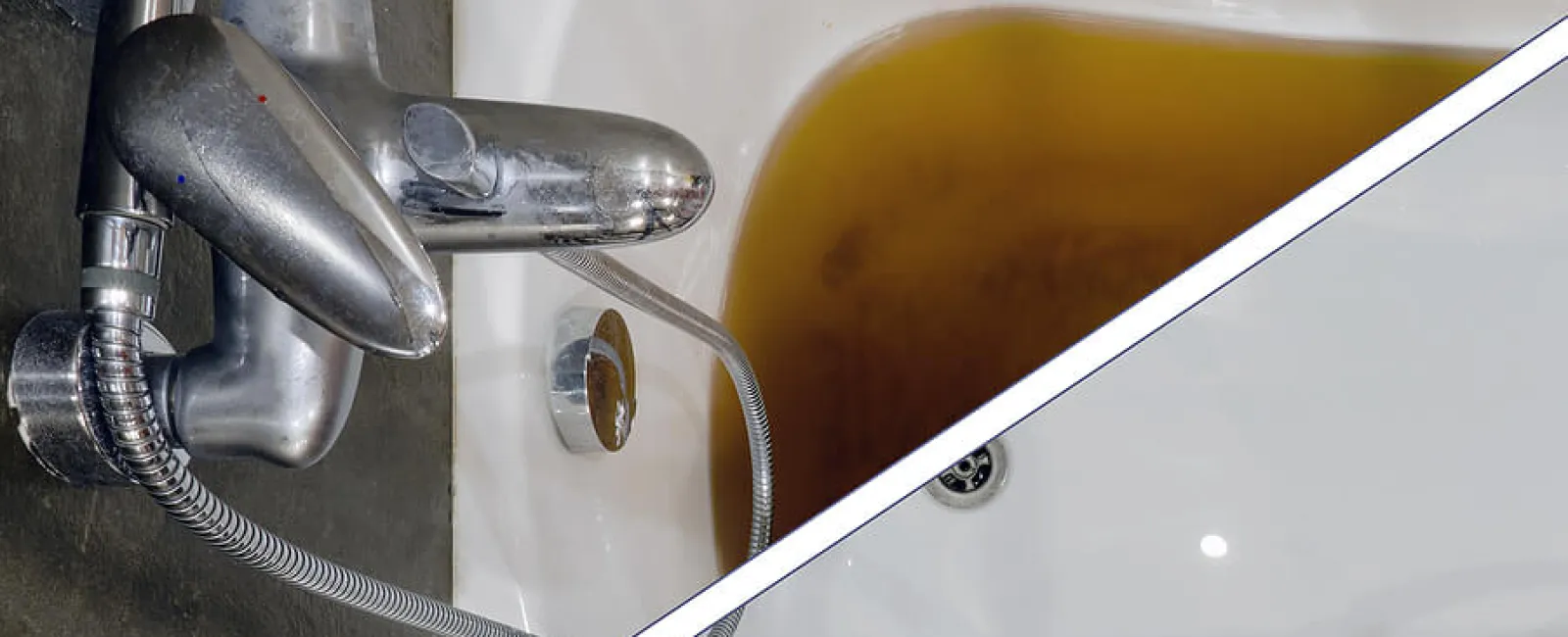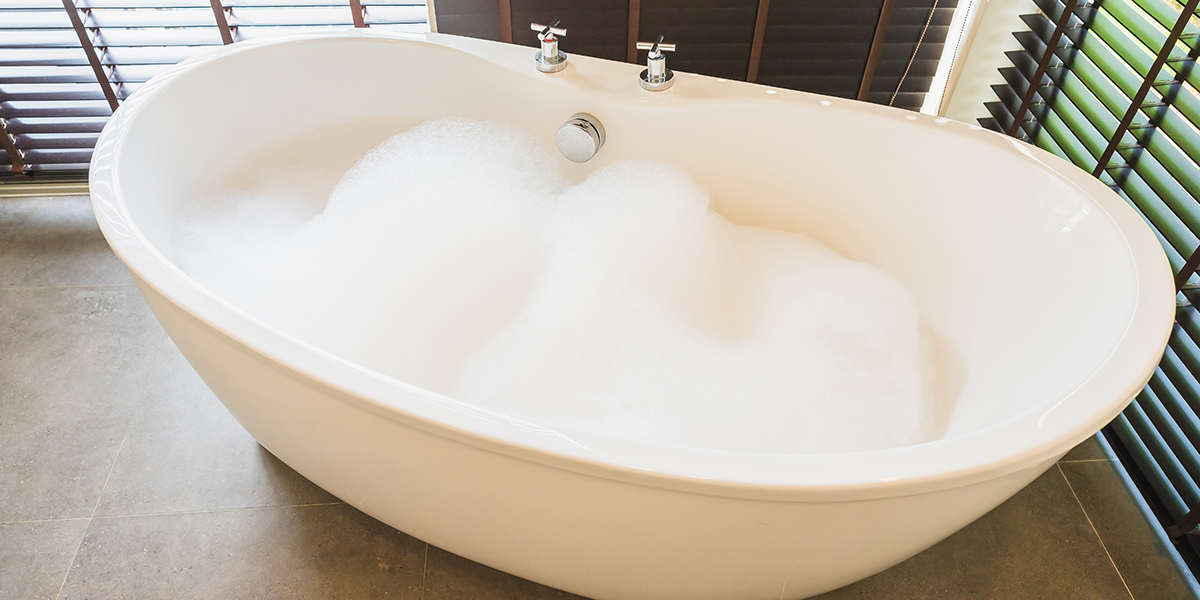Unraveling the Mystery of Waste in the Bathtub
Unraveling the Mystery of Waste in the Bathtub
Blog Article
In this article on the next paragraphs you can discover lots of exceptional data when it comes to Why is There Sewage Coming Up Through the Bathtub.

Sewer backup in the bath tub can be a distressing and unsanitary problem for any homeowner. Not only is it bothersome, but it also presents serious health and wellness risks and indicates underlying problems with the plumbing system. Recognizing why sewage is coming up through the tub is critical for taking suitable activity to attend to the issue successfully.
Introduction to the Issue
Usual Factors for Sewer Backup
Obstructions in the Sewer Line
One of the most usual causes of sewage back-up is a clog in the sewer line. This can happen as a result of the accumulation of debris, grease, or foreign items in the pipes, avoiding appropriate circulation and creating sewer to back up into your bathtub.
Tree Origin Invasion
Tree roots looking for wetness and nutrients can infiltrate sewer lines via tiny fractures or joints. With time, these origins can grow and broaden, causing substantial damages to the pipes and resulting in sewer back-up issues.
Comprehending the Issue
When sewer draws back up right into the bath tub, it's a clear sign of a problem with the drainage system. The wastewater that ought to be flowing away from your home is instead finding its way back right into your living space, which can cause considerable damage and health hazards.
Possible Reasons
Several variables can contribute to sewage back-up in the bathtub. From obstructions in the drain line to issues with the plumbing framework, identifying the source is important for finding a service.
Aging Facilities
Older homes may have outdated plumbing systems that are extra at risk to deterioration, splits, and deterioration. As pipelines age, they come to be more vulnerable to leaks and clogs, boosting the possibility of sewer backup occurrences.
Heavy Rainfall or Flooding
During periods of heavy rainfall or flooding, the drain system might come to be overwhelmed with excess water, triggering back-ups and overflows. This can result in sewage backing up right into tubs and other fixtures inside the home.
Indications of Sewage Backup
Foul Odors
Unpleasant smells rising from drains or fixtures, especially in the restroom, might indicate sewer back-up problems. These odors are usually strong and relentless, indicating a trouble that requires instant focus.
Slow Draining Fixtures
Bath tubs, sinks, and toilets that drain gradually or otherwise at all could be experiencing sewer back-up. If multiple fixtures are affected concurrently, it's most likely that the concern stems from a typical factor, such as the primary sewer line.
Gurgling Sounds
Unusual gurgling or bubbling sounds coming from drains pipes when water is running elsewhere in your house are a sign of air trapped in the plumbing system. This air accumulation can result from sewer back-up and must be checked out promptly.
Wellness Dangers Associated with Sewer Backup
Contamination of Supply Of Water
Sewage backup can infect the supply of water in your house, posing a severe wellness risk to you and your household. Direct exposure to infected water can lead to gastrointestinal problems, skin infections, and other diseases.
Mold Growth
Wetness from sewage backup can create ideal conditions for mold development in your home. Mold and mildew spores can exacerbate breathing troubles and create allergies in sensitive people, making punctual clean-up essential.
Spread of Illness
Sewer consists of harmful germs, infections, and bloodsuckers that can cause a range of illness, consisting of liver disease, cholera, and gastroenteritis. Entering contact with sewer or infected surface areas places you at risk of infection.
Cleaning Up After Sewage Backup
Disinfection Procedures
Extensively decontaminate and sanitize affected areas after sewage back-up to eliminate hazardous germs and prevent mold and mildew development. Usage ideal cleansing products and safety gear to guarantee safe and reliable cleanup.
Reconstruction of Influenced Areas
Fix any damages to flooring, walls, or components brought on by sewage backup. Relying on the level of the damage, you may need to replace carpeting, drywall, or other products to restore your home to its pre-loss problem.
Immediate Actions to Take
Switching Off Water Supply
In the event of sewage back-up, it's vital to shut off the water to stop more contamination and damages. Situate the main water shutoff valve in your home and closed it off until the concern can be fixed.
Speaking To an Expert Plumber
Dealing with sewer backup is not a DIY task. Call an accredited plumber with experience in taking care of sewage-related issues to analyze the circumstance and perform necessary repair services or cleanups.
Avoiding Contact with Contaminated Water
Till the sewage back-up is fixed, avoid contact with infected water to avoid the spread of bacteria and microorganisms. Wear safety equipment if you should remain in the damaged area and clean your hands extensively later.
Safety nets
Routine Maintenance of Sewer Lines
Set up normal evaluations and upkeep of your sewer lines to determine and resolve potential problems prior to they escalate into major problems. This can include cleaning out particles, examining for tree origin invasion, and fixing any kind of damaged pipelines.
Mounting Backwater Shutoffs
Think about setting up bayou valves in your plumbing system to avoid sewage from receding into your home throughout durations of heavy rainfall or flooding. These valves instantly close when water starts backing up, securing your home from contamination.
Correct Disposal of Family Waste
Stay clear of flushing anything apart from toilet tissue and human waste down the commode to prevent blockages and clogs in the sewer line. Dispose of grease, oil, and various other home chemicals effectively to minimize the risk of plumbing troubles.
Why Is Water Backing Up in My Bathtub When I Flush My Toilet?
What to do about a sewer line clog
First, don’t bother with plunging. No amount of plunging will dislodge the clog in a sewer line. The clog is too far away. Plungers are for clogs in the toilet itself, not the sewer line. Plus, the most likely causes of a sewer clog are:
Tree roots Flushed toys or feminine products Grease buildup Those items don’t move easily. And in the case of tree roots, the roots need to be cut out of the pipe and the pipe will need to be repaired.
You’ll need a closet auger. A closet auger is a type of plumber’s snake with a protective cover to keep from scratching the delicate porcelain toilet. If the clog is further down, you may need to remove the toilet or use one of your cleanouts to get to the clog.
We also recommend doing a video inspection of the drain to ensure that the cause of the clog has been completely removed. Otherwise, you could have the same problem again in a few days or weeks.
https://mspplumbingheatingair.com/blog/why-is-water-backing-up-in-my-bathtub-when-i-flush-my-toilet

We had been guided to that article about What To Do If Sewage Starts Backing Up Into the Shower from an associate on another domain. Those who enjoyed reading our post if you please do not forget to share it. Thank you for being here. Don't hesitate to stop by our blog back soon.
Phone
Report this page